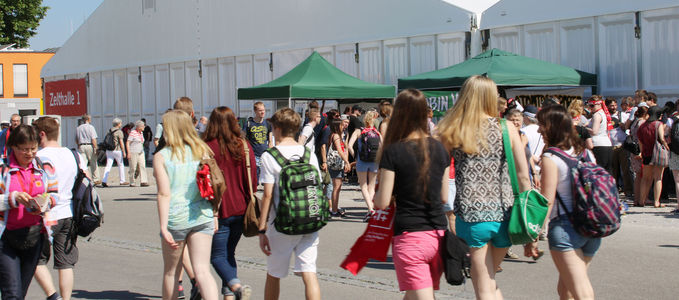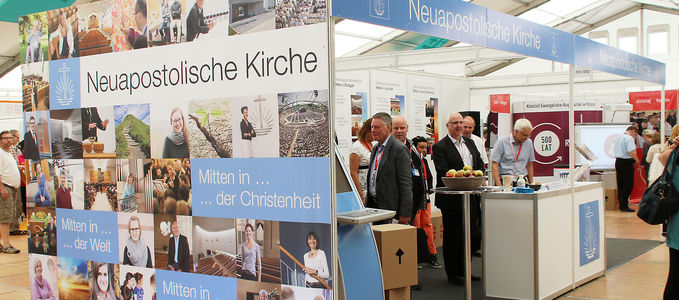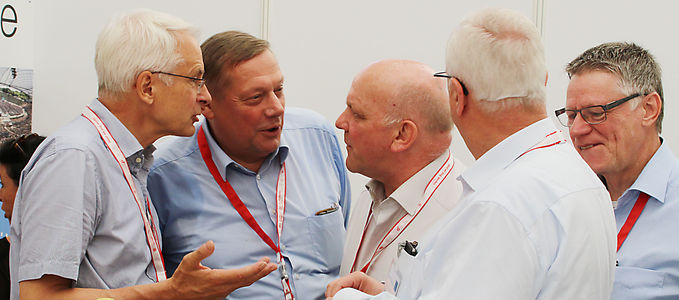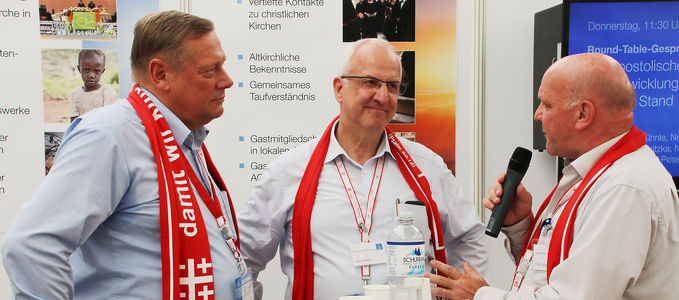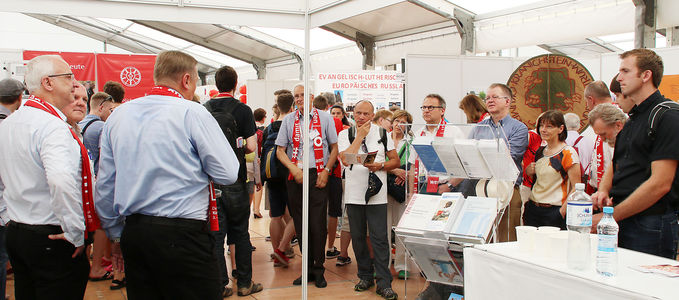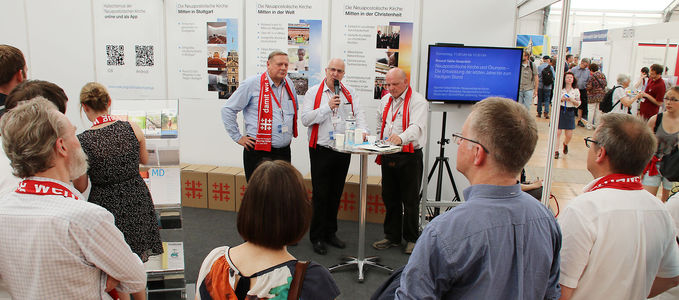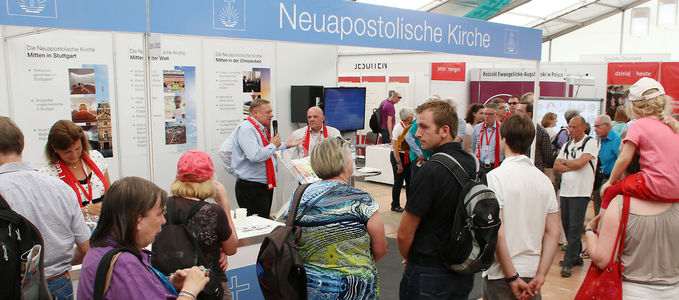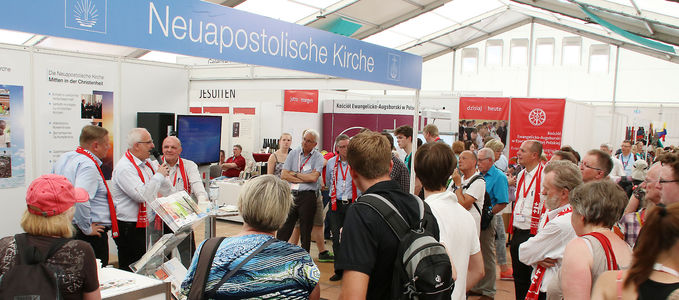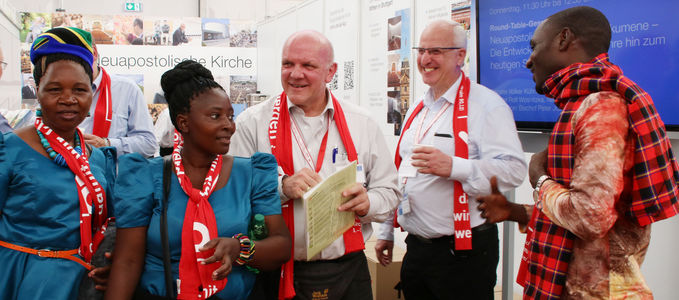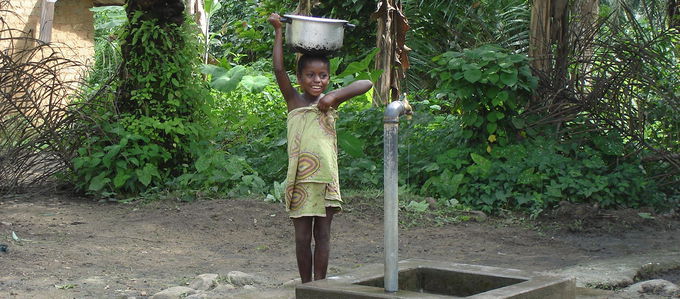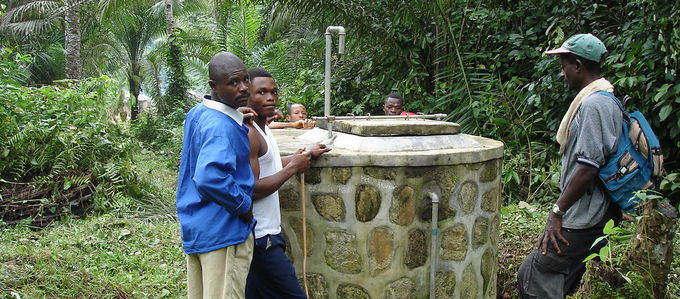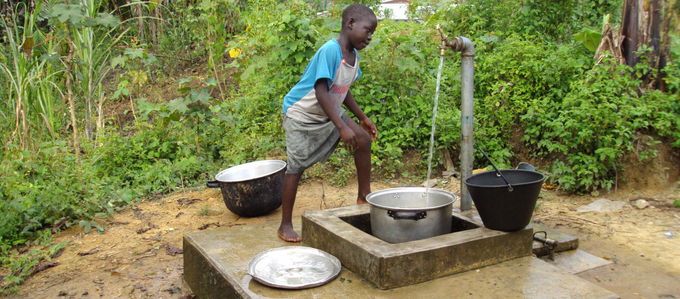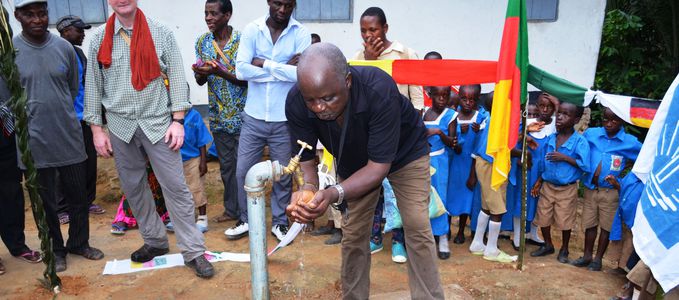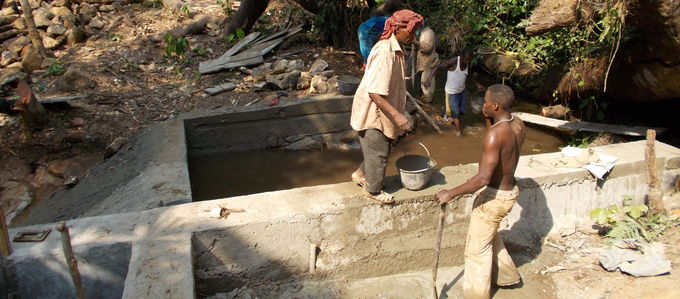Development work not only in spiritual matters
One church, many cultures … This was only one of the aspects under which the New Apostolic Church—which is active in nearly all countries worldwide—presented itself at the Evangelical Church Convention in Stuttgart, the largest such gathering in Germany. On the agenda were not only spiritual topics, but also humanitarian aid and the promotion of education.
The German Evangelical Church Convention takes place every second year. Not only the Protestant churches and free churches are represented at this so-called market of possibilities, but also many other religious denominations. At this 35th convention, the New Apostolic Church hosted a panel discussion on the topic “One world, many cultures: the New Apostolic Church in West Africa”. The panel, moderated by Apostle Volker Kühnle—he chairs the Work Group Contacts to Religions and Other Denominations—was comprised of participants who are familiar with the cultures in both Africa and in Europe.
We start by building a congregation
One of the members of the panel was Apostle Clément Haeck, who looks after five countries in North and West Africa. “The culture in these countries is completely different to what we in Europe know. At first there is a lot of skepticism when it comes to white missionaries,” he said. “As a Church we don’t immediately begin with aid projects. We start by building a congregation and offer divine services. Only once we are known as a Church and are accepted do we begin to support the local population.” This has proved to be good, the Apostle said.
His worry: “Many young people desperately want to move from the villages to the cities or, if at all possible, to Europe. This also affects our congregations, of course,” Apostle Haeck said. “The rural exodus really has a huge impact on the life of the people there,” Joachim Müller, director of the Institute of Agricultural Engineering at the University of Hohenheim and rector of a congregation in Southern Germany, explained. “That is why it is becoming more and more important to make the everyday life of the people in the rural areas more attractive. And this is where humanitarian support and education programmes play an increasing role.”
Humanitarian help
Professor Joachim Müller is an expert when it comes to water. He pointed out how important it is to provide people with drinking water. “Water is becoming one of the most highly sought-after resources,” and began to talk about concrete projects. “Before we can do anything, we have to see about collecting money. Before a new well can be handed over to a village, for instance, it requires a lot of commitment and coordination. The Church has a strong interest that the project is sustainable over the long term.”
“The work of the Church is very important. It is well received by the people,” Albert Garber reported. He comes from Sierra Leone and has been living in Berlin since 2008 and is currently doing his doctoral degree in Agricultural Engineering. But there is far more to development aid in his eyes, he said. “What is extremely important are educational programmes.”
Educational programmes
“Even education begins in the congregations,” Wolfgang Oehler explained. He is head of music education and foreign aid for West Africa at the Jörg-Wolff-Stiftungin Stuttgart. “We offer Sunday School and Confirmation classes. The classes are of course a little different to what we in Germany are used to, because of the sheer number of children in Africa.” In his function as a District Elder, he works in Sierra Leone for the Church.
“But there is more,” he said. “The New Apostolic Church is also involved in building schools. For the equivalent of about 15,000 euros we can build six classrooms. Education is more important than ever. The Ebola crisis has severely impacted West Africa’s good economy.”
Making do with very little
Despite the hardship in West Africa, Europeans can learn from the people there. “People here in Europe are well off. They have food on the table every day,” Alfred Garber said, and talked about how the culture in Germany confused him at first. “In Sierra Leone the people are a lot happier. It is the only way they can deal with the hardships they face.”
District Elder Oehler has experienced something similar. “The joy and enthusiasm of the people there is amazing. They have learned to make do with the little they have. This is something that one should be able to import to Germany.”
Article info
Author:
Date:
Keywords:
Peter Johanning,
Andreas Rother
09.06.2015
Germany,
Denominations,
Congregational life


